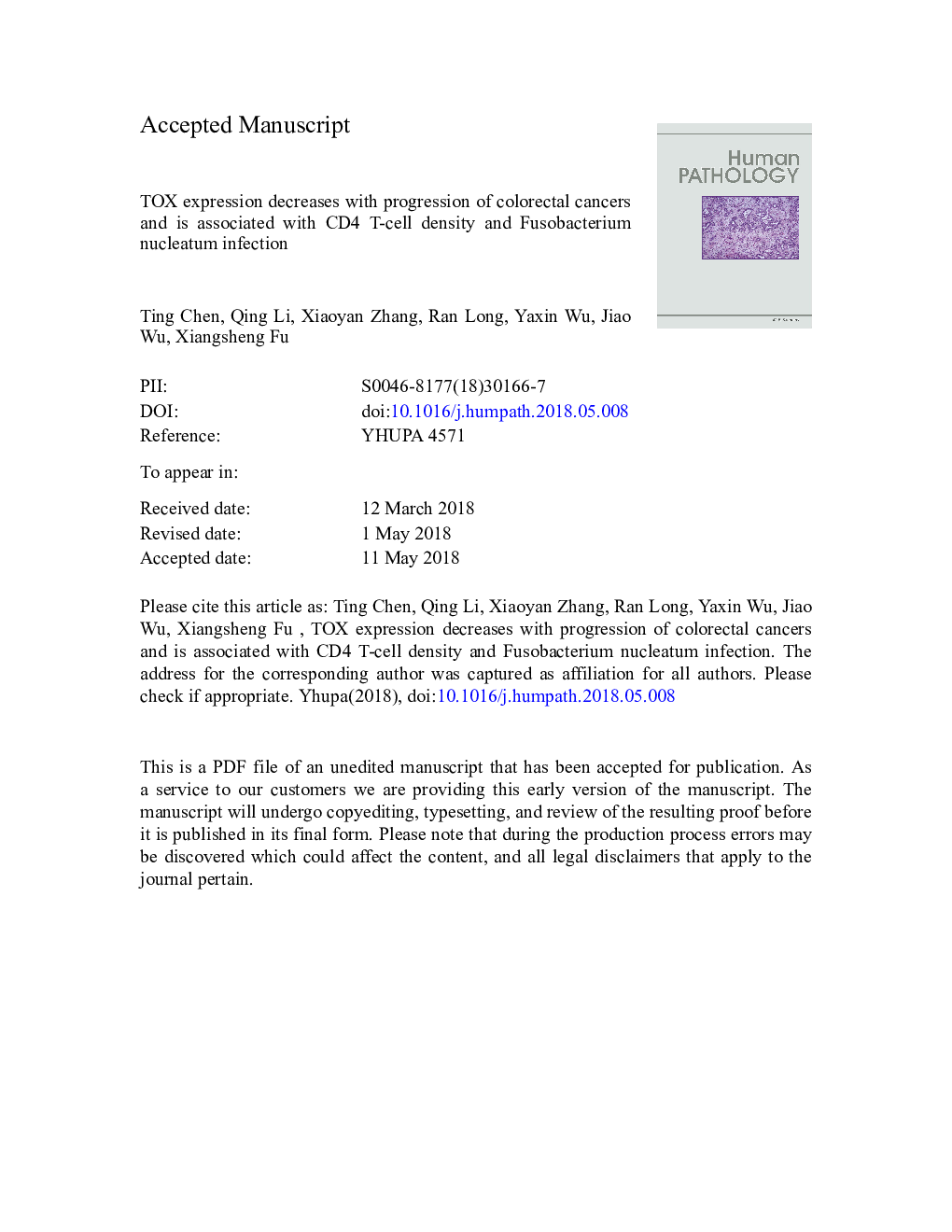| کد مقاله | کد نشریه | سال انتشار | مقاله انگلیسی | نسخه تمام متن |
|---|---|---|---|---|
| 8807441 | 1606631 | 2018 | 25 صفحه PDF | دانلود رایگان |
عنوان انگلیسی مقاله ISI
TOX expression decreases with progression of colorectal cancers and is associated with CD4 T-cell density and Fusobacterium nucleatum infection
دانلود مقاله + سفارش ترجمه
دانلود مقاله ISI انگلیسی
رایگان برای ایرانیان
کلمات کلیدی
موضوعات مرتبط
علوم پزشکی و سلامت
پزشکی و دندانپزشکی
آسیبشناسی و فناوری پزشکی
پیش نمایش صفحه اول مقاله

چکیده انگلیسی
Fusobacterium nucleatum in the tumor microenvironment plays an important role in the development of colorectal cancer. The underlying mechanism of action, however, remains to be elucidated. We evaluated the relation of F nucleatum amount to thymocyte selection-associated high-mobility group box (TOX) protein expression and CD4+ T-cell density in 138 human colorectal tissues. TOX expression and CD4+ T-cell density in Fnucleatum-negative tissues were significantly higher compared to those in Fnucleatum-positive tissues (Pâ¯<â¯.001 and Pâ¯=â¯.002, respectively). We found a negative correlation between F nucleatum abundance and TOX expression (Pâ¯<â¯.001) and CD4+ T-cell density (Pâ¯<â¯.001). TOX expression in normal mucosa, hyperplastic polyps, and adenomas was significantly higher than in sessile serrated adenomas and different stages of carcinomas (Pâ¯<â¯.05). Moreover, CD4+ T-cell density in high-TOX expression tissues was significantly higher than in low-TOX expression tissues (Pâ¯=â¯.003). A positive correlation was found between TOX expression and CD4+ T-cell density in colorectal tissues (Spearman correlation coefficient: 0.362, 95% confidence interval: 0.051-0.641, Pâ¯=â¯.022). Our findings suggest that F nucleatum may suppress antitumor immune responses by decreasing CD4+ T-cell density and TOX expression in the progression of colorectal cancer.
ناشر
Database: Elsevier - ScienceDirect (ساینس دایرکت)
Journal: Human Pathology - Volume 79, September 2018, Pages 93-101
Journal: Human Pathology - Volume 79, September 2018, Pages 93-101
نویسندگان
Ting MS, Qing MS, Xiaoyan MD, Ran MD, Yaxin MS, Jiao MS, Xiangsheng MD, PhD,